Interview: Brian Hodge
Super happy to have Brian Hodge sharing with us today! He’s one of those writers of original and thrilling ideas, a workhorse with a fluid, confident and subtle style. So far it’s led to 10 novels, over 100 pieces of short fiction, 4 collections, and a small mountain of nonfiction that have been published by Dell, Pocket Books, Delirium, Cemetery Dance, Tor, Pinnacle, Nightshade Books, and others. Almost a regular in every Best-of anthology that’s ever been, this fella knows what works for him and he works it hard. His short collection FALLING IDOLS is one of my favorite reads so far this year. Thanks to Brian for taking the time to answer questions and to anybody who reads, leaves a comment and shares!
1. What is the line between amateur and professional? When do you feel you first passed that mark?
A: The line lies somewhere between accomplishment and attitude, but it’s probably different for everybody. The early stories I sold were all solid validations, but I suppose I felt I’d definitively crossed the threshold when my first two novels sold about three months apart, and that let me quit the job I’d been working the first few years out of university.
2. Who are your influences?
A: Anymore, for me, trying to contemplate that is like trying to isolate how phytonutrients interact. You know, if you eat a good assortment of fruits and vegetables, you take in about 5000 different phytonutrients … but how do they all specifically interact? No one really knows. It’s as complex with creative influences. Some, though, off the top of my head: Early on, Stephen King, Peter Straub, Harlan Ellison, Clive Barker. Here and there, William Shakespeare, Ernest Hemingway, John Steinbeck, Cormac McCarthy, Charles Bukowski, Elmore Leonard, James Hall, Carl Hiaasen. Friends and contemporaries who rubbed off to one degree or another, Poppy Z. Brite, Kathe Koja, Caitlin Kiernan. But a ton of influence has also come through nonfiction, film, music, visual art. I went through a Joel-Peter Witkin phase. More recently, I’ve drawn a lot of nutrition, both for writing and music, from the late Polish surrealist artist Zdzislaw Beksinski.
3. How has your approach to a first draft changed since you started?
A: I don’t think it has, really. The fundamental objective is still the same: to get the story down, more or less in total, by any means necessary, so that you have a tangible blob to start crafting into shape and bringing it in line with its potential. The thing you have going for you early on is naivety and a kind of euphoric ignorance. But you lose that eventually, which has both good points and bad. I do find the first draft process more painstaking than I used to, because the standards I have for myself are higher now. I’m often in a tug-of-war between that and giving myself permission to suck because, after all, it is just the first draft and nobody’s going to see it anyway. So the approach may be the same, but the experience is different.
4. Do you feel your other disciplines have helped your writing craft? If so, in what ways?
A: Undoubtedly they do. Things don’t happen in a vacuum. It’s all synergistic. If you have other creative outlets — I like music and photography — that’s another way of flexing the same core. I’m also in my fifth year of practicing Krav Maga, and that’s led to other physical training offshoots: Brazilian Jiu Jitsu, mixed martial arts striking, circuit workouts, kettlebells, bag work. Something like that can’t help but improve your discipline and focus overall, as well as build up your stamina for getting through the day with a higher level of energy. The more you do, the more you try, the more you learn, the more neural pathways you’re going to form. That can only be a good thing. That can only serve your art and craft.
5. I love your Warrior Poet website. I always enjoy when writers are also great teachers. What led you into teaching? Have you been that way since a child?
A: Teaching runs in the family. There are teachers on both my father’s and mother’s sides, going back at least three generations, everything from university to one room country schoolhouse. Although I can’t say that I see myself as part of that tradition. I just blog and try to convey what I can. I first got into that by being asked to join the roster at Storytellers Unplugged. I liked it and eventually decided to start my own blog, with its own identity, where I can also go in directions that probably wouldn’t be appropriate for SU. Hence the tagline: Writing as a full-contact lifestyle. It’s another way of maintaining a presence.
Although, come to think of it, in a way I occasionally assume a teacher role, very informally, where I train in Krav. Even though I’m in my fifth year, I still do basic classes because you can never drill fundamentals too much. I’ve gotten a number of compliments from new students I’ve ended up partnered with. I’ve just done it long enough that I know what the instructor would be correcting if he or she saw what the new person is doing wrong, so I figure why wait, why let someone continue to drill it wrong in the interim? With one of the highest-level instructors we had, a guy with an extensive military background — a great guy and tremendously creative and effective trainer, and also one of Matt Damon’s trainers for the first Bourne film — there were several times when he apparently didn’t like what he was seeing early in a class, and he’d shuffle a couple of pairings to put a new student with me. Because he knew I’d moderate myself and not try to make this person’s first or second time there miserable.
So while, no, I wasn’t that way as a kid, maybe it’s something that comes on you eventually. You start seeing how you can help bring other people along.
6. Can you pick favorites from your work?
A: My favorites are always the most recent things. But I have enduring warm places in my heart for certain works. Dark Advent, because that was the single best lesson in characters I ever had. Prototype, because it helped put to rest something inside that I’d been trying to get at for years. Wild Horses, because that proved to me that I could go in a totally different direction, and it was so much fun.
On the shorter side, “As Above, So Below,” which I wrote as the capstone for my Falling Idols collection. That left me feeling like I was literally walking in another dimension, plus it recently appeared in The Century’s Best Horror Fiction, so I have to feel mad love for something that put me in that amazing company. “Liturgical Music For Nihilists,” the capstone for my first collection, The Convulsion Factory. That left me highly unsettled, in a good way. Everything that’s part of the Misbegotten story cycle: “The Alchemy of the Throat,” “The Dripping of Sundered Wineskins,” “When the Bough Doesn’t Break,” and World of Hurt, because that’s such a rewarding mythos to keep returning to whenever it feels like it’s time. Last year’s “Roots and All,” from A Book of Horrors, because its source background is very close to my heart and there’s been such a great reaction to it. There are lots more, but I’d be going on all day.
7. For a new reader of your work what three pieces would you suggest they start with?
A: On the horror side, I’d say Prototype. That might be the highest realization of what I wanted to do there. The recent e-book edition contains the preferred text. On the crime side, Wild Horses. Plus the 2011 story collection Picking The Bones. That’s probably the most rounded one, and Publishers Weekly honored it with a starred review, so that’s a good stamp of approval.
8. How do you juggle the many aspects of a writing career? What’s a typical week like? Or is there no ‘typical’?
A: At the week level, it stays pretty typical. But yeah, it has become a lot to juggle. Awhile back I unearthed some old desk calendars from about 15 years ago, and was gobsmacked at how few things I had down to do each day.
Now, in any given week, I might be moving between various long and short fiction projects, nonfiction assignments, blog posts, updating my author web site, serving as the IT manager of my sites and our home network, doing and cataloging research, processing paperwork like contracts and galley proofing and communiques, tending to promotional activities, and so on.
Another thing that’s been really time-consuming is going through Word files and OCR scans of my earliest novels and collections, proofreading and formatting and polishing before they migrate into e-book formats, then getting the covers commissioned and doing the cover lettering. But at least when all that’s done, it’s done.
I find the best way to keep on top of it all is to do the best job I can of managing not just time, but physical and mental energy. It’s taken a lot of experimenting and floundering to get there, but I’ve finally got a system in place that’s working. The time and project management approach that resonates best with me is the one Tony Robbins lays out in his Time Of Your Life program. Then I tackle things in terms of block time: I’m going to do nothing but focus intently on Task X for this hour, these two hours. In between time blocks, I’ll do something as a refresher, to clear the mental slate: meditate, play fetch with our cat, play the didgeridoo, work out or go for a run, water the garden, whatever.
And the start of the day is crucial. That sets the tone. As soon as I get up, I go for a quick walk for physiological reasons detailed in this blog post, but in short, to get revved. By 7:30 I’m at the desk to do an hour of work before breakfast and especially before I go anywhere near the Internet. Establishing that mindset and momentum is vital. And Sundays are for downtime, doing some music, chilling out with Doli and being a couple. It’s important to hit the reset switch.
9. You seem a very calm and focused young man and it comes across in the directness and confidence of your fiction. How important do you think it is to be relaxed, or at peace with yourself, when creating?
A: It’s certainly not a prerequisite. Plenty of people do great work from a state of agitation or a place of pain or unhappiness, and I’ve definitely been there and done that. It’s not necessarily the best plan for lifetime achievement, but if that’s the place you happen to be, it’s still better to work than not, and doing the work may help you claw your way to a better place. So whatever works, whatever fuels you.
If something of mine is coming across with directness and confidence, I’d have to wonder if that isn’t mainly a result of never having stopped trying to refine my voice. By now it’s like a marble statue that’s had years and years of buffing. As I’ve been going these earlier works, I can see that refinement gradually taking shape. I frequently don’t like what I’m finding, but I had to start somewhere. And now I have a much better instinctual sense of what belongs on the page and what just gets in the way, what I can cut and what it might still need. Not that there’s a final destination here. I’ll always be trying to make it better.
As for calm and focused, yeah, I mostly am. Part of that is natural temperament, and the rest might be the Krav as much as anything. Nearly every class ends with a stress drill or exhaustion drill. You do that long enough and a side-effect is something called stress inoculation: It keeps pushing your stress threshold farther and farther away. Mine’s way the hell out there now.
10. Do you set goals each year? Or tackle whatever you feel like as the mood hits you?
A: I don’t think the in-the-mood strategy is a very viable one in the long run, because it’s just too nebulous. Believe me, I’ve tried that, and didn’t end up with much to show for it! Discipline and systems will kick that approach’s ass every time. So yeah, I have long-term objectives. Long, intermediate, and short. Which isn’t to say that I always hit them on time, but the structure is there, so it’s always easy to find true north. In fact, lately, I’ve been finding that the more I nail that part down, the more things come together.
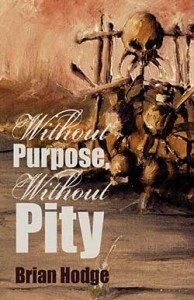
11. What is your latest published work?
A: That would be a novella called Without Purpose, Without Pity, that I did for Delirium Books, the longest thing I’ve done that’s still shy of novel length. We’re in between formats on that one. The e-book version became available at the beginning of April, and the hardcover will be released in June.
It’s a weird combination of elements. It’s set in the near future, after Las Vegas has hit the wall in terms of being a sustainable city. It isn’t, really, because of its water needs relative to the available supply. Even since the e-book has come out, Nevada has approved a plan to steal other people’s groundwater and pump it in from 300 miles away. So I’ve just projected the dystopian aftermath of a worst-case scenario, after an economic and environmental collapse. Layered atop that is this Lovecraftian element that’s cut the area off from the rest of the world, and it all unfolds through the perspective of the world of pro fighting, in particular what’s going on with this former heavyweight contender whose body has undergone a radical change after he disappeared in the desert for a week.
12. Terrific little book. I read it a week ago. What do we have to look forward to next?
A: In addition to Without Purpose, Without Pity, I’m putting together a collection of crime fiction called No Law Left Unbroken, that should be ready in a few months, exclusively in digital format. I’ve also done a couple portions of the second book in editor Stephen Jones’ Zombie Apocalypse trilogy, what he’s dubbed mosaic novels. That was great fun to work on, and will be out in the fall.
Some short works here and there: There’s a piece I wanted to do ever since I saw those HBO Iceman Tapes documentaries on mob killer Richard Kuklinski, based on an incident in his life. That’ll be in an anthology called Danse Macabre, edited by Nancy Kilpatrick. A vintage reprint in John Skipp’s Psychos. Again, autumn for those. Also, a piece for an upcoming end-of-the-world special issue of Cemetery Dance magazine. This one is a great concept: They’re tapping some of their favorites who’ve already destroyed civilization once, and having us do it again.
CD Publications is also doing a big hardcover edition of my early post-apocalyptic novel Dark Advent, which is going to be gorgeous. I did an extensive polish on that one, because it was such an early work, and fixed a couple of logic errors, so by now it amounts to a brand new draft. Like a remastered edition, the music’s the same, it just sounds better.
And, as mentioned already, I’m converting my backlist books over to digital editions, managing to get through one a month lately, and some are in the queue for audio, as well.
So all that covers the rest of the year, and maybe a little beyond, and later this year I’ll finally complete the next novel that’s been taking so stupidly long.
Thanks so much for the fantastic interview and your time, Brian!
There you have it. Go grab one of his books!
Brian Hodge Links
Web site.
Warrior Poet Blog.
Facebook.
 newest »
newest »

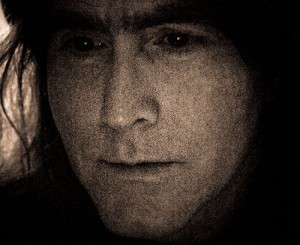
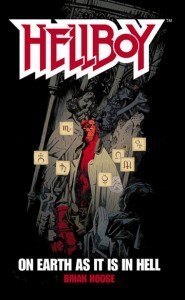
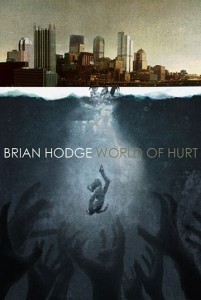
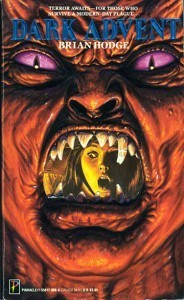
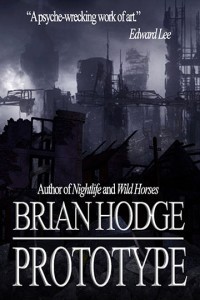
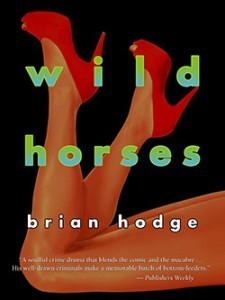
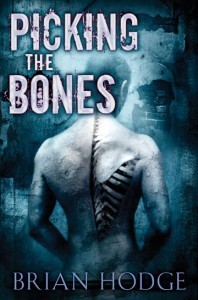





I adored Without Purpose, Without Pity.